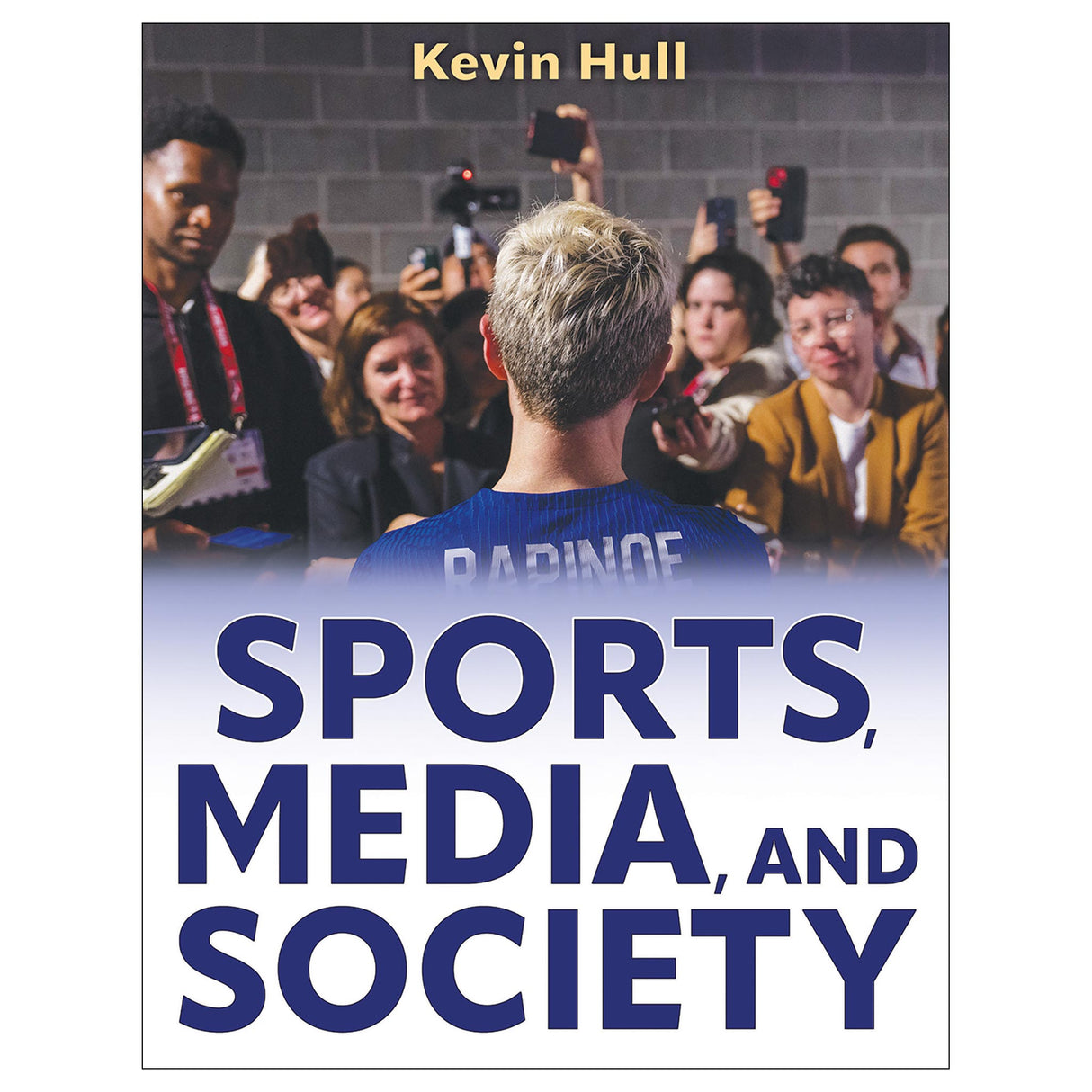Sports, Media, and Society epub
Author: Kevin Hull
$75.00 USD
Access Duration: 10 Years
Sports, Media, and Society investigates the impact of societal issues in sports and how the media reports those stories. Why does the sports media operate in the manner that it does, and what’s the impact of its decisions on the audience?
With Sports, Media, and Society, there is now a resource that combines mainstay class discussion points, current case studies, and theoretical and historical foundations in one comprehensive text. The book’s 34 chapters are each short and concise—a format preferred by instructors—covering a wide range of topics and easily digestible for students.
Part I covers sports media history and the media’s role as gatekeeper. Chapters explore the history and evolution of various media—newspapers, magazines, radio, television, and social media—and the business of and competition between sports media entities. Case studies examine NBC’s Olympics coverage and the nimbleness of Sports Illustrated in the digital space.
Part II showcases television’s impact on how fans follow sports. Discussions include ABC’s Wide World of Sports, which exposed viewers to events around the globe; ESPN’s foray into 24/7 sports coverage; and Fox Sports’ shocking NFL deal, which marked a new era in media rights negotiations and sports broadcasting technologies.
The intersection of sports and social issues is the focus of part III. Numerous issues are addressed, punctuated by case studies involving key players and events related to each topic. Cases concerning Colin Kaepernick, USWNT (and coverage of women’s sports generally), LGBTQ+ issues, and obstacles faced by women working in sports media are highlights, while examinations of social identity theory and framing provide context on how people identify with specific groups and how the media influences opinions.
Athletes and sport entities are constantly in the news—not always in a positive light. Part IV addresses crisis management and communication, featuring case studies about Tiger Woods, Lance Armstrong, LeBron James (The Decision), Kobe Bryant (his death and the misreporting of facts surrounding it), and the Houston Astros sign-stealing scandal.
The text concludes with part V, which explores emerging trends in sports media and society. Through social media, virtually anyone can become a thought leader (wresting control from traditional outlets), and teams and athletes can dialogue directly with fans, effectively sidelining sports journalists. Chapters on the formerly taboo subjects of athlete mental health and sports wagering, as well as the exploding popularity of esports, round out the text.
Sports shape our culture in numerous ways, and the sports media plays a transformative role in how it occurs. Sports, Media, and Society prepares tomorrow’s sports journalists and communicators to venture beyond the how-tos of developing content to understanding the whys behind it.
Audience
Undergraduate students enrolled in sport management and sport communication courses addressing the interrelationships of sports, media, and society at large. The text is also applicable for courses in sports journalism, sociology of sports, and race and gender studies.Chapter 1. Theoretical Foundation: Gatekeeping
Chapter 2. History and Evolution of the Sports Media
Chapter 3. Business of the Sports Media
Chapter 4. Case Study: NBC and the Olympics
Chapter 5. Case Study: Sports Illustrated
Chapter 6. Social Media in Sports
Part II. The Impact of Television
Chapter 7. Theoretical Foundation: Agenda Setting
Chapter 8. ABC Sports
Chapter 9. ESPN
Chapter 10. Fox Sports
Chapter 11. Case Study: League of Denial
Chapter 12. Case Study: ESPN and the SEC Bias
Part III. Social Issues
Chapter 13. Theoretical Foundation: Social Identity Theory
Chapter 14. Theoretical Foundation: Framing
Chapter 15. Media Coverage of Race in Sports
Chapter 16. Case Study: Colin Kaepernick
Chapter 17. Case Study: “Stick to Sports”
Chapter 18. Media Coverage of Women’s Sports
Chapter 19. Case Study: U.S. Women’s Soccer Team
Chapter 20. Women in the Sports Media
Chapter 21. Media Coverage of LGBTQ+ in Sports
Chapter 22. Case Study: Michael Sam
Part IV. Crisis Communication
Chapter 23. Theoretical Foundation: Crisis Communication
Chapter 24. Case Study: Tiger Woods
Chapter 25. Case Study: Lance Armstrong
Chapter 26. Case Study: LeBron James and The Decision
Chapter 27. Case Study: Death of Kobe Bryant
Chapter 28. Case Study: Houston Astros Cheating Scandal
Part V. Emerging Trends in Sports Media and Society
Chapter 29. Theoretical Foundation: Two-Step Flow
Chapter 30. Team and Player Media
Chapter 31. Lasting Impact of COVID-19
Chapter 32. Mental Health
Chapter 33. Esports
Chapter 34. Sports Betting
Media response to the death of Kobe Bryant
NBC takes over the Olympics
Player media puts traditional media on the outside looking in
Sports leagues embrace Las Vegas
All ancillaries are free to adopting instructors through HKPropel.
Instructor guide. Includes a syllabus, chapter-specific files with chapter objectives, lecture notes, recommended responses to end-of-chapter review questions, and one sample assignment per chapter.
Test package. Contains 250 multiple-choice questions. The files may be downloaded for integration with a learning management system or printed for use as paper-based tests. Instructors may also create their own customized quizzes or tests from the test bank questions.
Presentation package. Features more than 440 PowerPoint slides of figures and key points from the book that can be used for class discussion and presentation. The slides in the presentation package can be used directly within PowerPoint or printed to make handouts for students. Instructors can easily add, modify, and rearrange the order of the slides.





